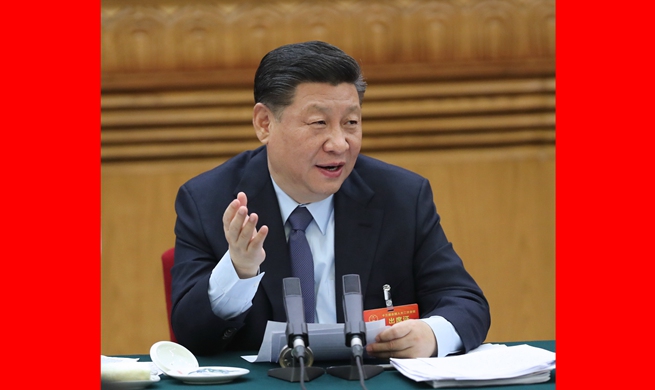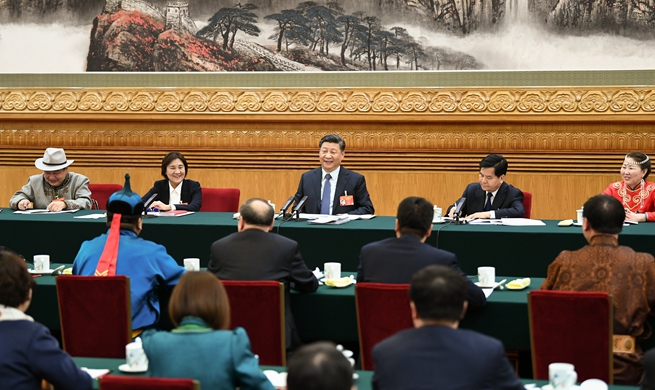BERLIN, March 8 (Xinhua) -- The German capital is celebrating International Women's Day (IWD) as a public holiday for the first time on Friday, the first German federal state to do so.
The Women's Day (Frauentag) holiday was introduced by Berlin's governing coalition, the German Social Democrats (SPD), the Green party and the Left party.
"For politics as well as for society, this means continuing to fight for equality and women's rights. Unlike any other date, March 8 represents the long road towards gender equality," said Berlin's governing mayor Michael Mueller (SPD).
"Even though much has been achieved, many burning tasks remain. This is the message of the International Women's Day and the new holiday in our city," concluded Mueller.
The Berlin social democrats said they would be handing out almost 30,000 roses in the city Friday, following a tradition started in the former German Democratic Republic (GDR) in 1947.
Not all politicians in Berlin or even Germany supported the introduction of a public holiday. When the draft law was voted on in Berlin's governing senate body last year, 60 out of the 147 members present for the vote opposed the draft law.
"International Women's Day is undoubtedly a special day. But I do not think the Berlin version is progress," said Angelika Niebler (CSU), chairwoman of the Bavarian Women's Union in an interview with the German public radio station Bayerischer Rundfunk 2 on Friday.
Broader German public opinion looks more favorably on a national public holiday for IWD. According to YouGov survey conducted on behalf of Germany's editorial network (RND), 54 percent of the 2,055 German citizens surveyed would support a national public holiday for Frauentag.
Thirty-four percent of respondents would oppose the introduction of a national public holiday while 12 percent did not respond.
There was in fact also a pragmatic reason for introducing Frauentag in Berlin, which was the only German federal state with less than 10 public holidays.
In many countries including Cuba, Russia, Uganda and Vietnam, IWD is an official public holiday.
In 1977, the United Nations declared March 8 to be International Women's Day in order to promote women's rights and gender equality around the world.
Germany has celebrated IWD since 1911 when citizens began rallying for women's rights. One of the most important demands was the introduction of women's suffrage in Germany, a demand which was met in 1918.
Figures from the German Federal Statistical Office (Destatis) show that women in Germany have exercised their voting rights as actively as German men. At the last Bundestag elections, turnout for women was 76.6 percent and 77 percent for men, according to Destatis.













